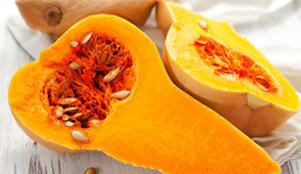by
Stepy —
November 9, 2018
- There’s something unique about winter squash that just feels like a comfort yet healthy food.
- Although it is used as a vegetable in cooking, it is technically considered a fruit.
- It is often used during the holidays in many dishes for its rich flavor.
- Let’s look at the health benefits of winter squash.
- Antioxidant rich:
- Squash is a great source of antioxidants such as vitamin C and manganese. Antioxidants protect the body from the effects of oxidative stress, which may help strengthen the immune system and ward off diseases.
- Dr. Andrew Weil explains, “oxidative stress is the total burden placed on organisms by the constant production of free radicals in the normal course of metabolism plus whatever other pressures the environment brings to bear (natural and artificial radiation, toxins in air, food and water; and miscellaneous sources of oxidizing activity, such as tobacco smoke).”
- The effects of oxidative stress are often linked to chronic illnesses such as heart disease and many types of cancers.
- Anti-inflammatory properties:
- Squash is an excellent source of omega-3 fatty acids, which are known for their anti-inflammatory and antioxidant properties. Inflammation is considered a major risk factor for chronic diseases including heart disease and many types of cancers.
- Blood sugar regulation:
- Squash has shown benefits in the area of blood sugar regulation and the prevention of type 2 diabetes. A study from the China Agriculture University showed that the protein-bound polysaccharides found in squash may have anti-diabetic effects. More studies need to be performed to confirm these benefits, but the results are promising.
- Eye health:
- Squash is high in beta-carotene and lutein, which are antioxidants that promote overall eye health. These antioxidants protect from age-related diseases like cataracts and macular degeneration.
- Heart health:
- The antioxidants in squash such as vitamin C and manganese provide anti-inflammatory benefits, promoting overall heart health and reducing the risk of heart disease. The magnesium and potassium in squash help lower blood pressure.
- Low in calories:
- One of the things that makes squash so healthy is that it is low in calories. One cup winter butternut squash contains just 82 calories.
- For the health benefits of pumpkin seeds.
- Note: None of the information in our website is intended to diagnose, treat, cure or prevent any illness or disease. The content on our website is for educational purposes only.
- REFERENCES:
- 1. “Effects of Protein-bound Polysaccharide Isolated from Pumpkin on Insulin in Diabetic Rats.” NCBI. U.S. National Library of Medicine, n.d. Web. 12 Nov. 2013.
- 2. “Nutrition Facts and Analysis for Squash, Winter, Butternut, Cooked, Baked, without Salt.” Self Nutrition Data. Self Nutrition Data, n.d. Web. 12 Nov. 2013.


















